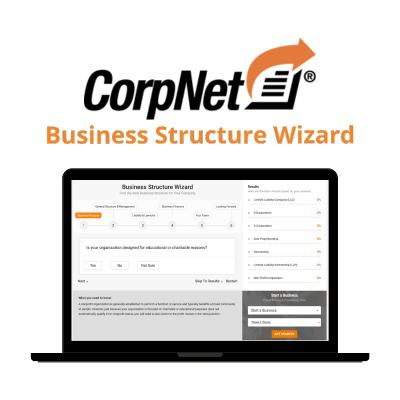Maryland’s strategic location on the east coast of the U.S. is within easy reach of major metropolitan cities like Washington, D.C., Baltimore, Philadelphia, and New York City. This proximity can give your business access to a large customer base and supply chain networks. In addition, Maryland is home to several top-notch universities, research institutions, and a highly educated workforce. You can tap into this talent pool to find skilled employees in various fields, from technology and healthcare to finance and biotechnology.
Today’s post is a thirteen step guide to starting a new business in Maryland.
1. Refine Your Business Concept
Before investing valuable time and financial resources, ensuring that your business idea holds promise for success is crucial. You can make an informed decision by conducting a feasibility study and seeking input from reliable advisors such as SCORE mentors, business consultants, accountants, and attorneys.
2. Craft a Comprehensive Business Plan
When embarking on a business venture in Maryland, crafting a well-structured business plan is essential. A business plan defines your objectives and outlines the strategies you intend to employ to attain them. The level of detail in your business plan may vary based on the nature of your business. It can range from comprehensive and in-depth to concise and focused. Of vital importance, a well-prepared business plan can also facilitate external funding. Typically, business plans encompass the following key sections:
- Executive Summary
- Company Overview
- Products and Services Descriptions
- Market Analysis
- Competitive Analysis
- Sales and Marketing Plan
- Management and Operations Description
- Financial Projections
You can generate your business plan through online templates or enlist the services of a professional business consultant.
3. Name Your Business
Selecting a business name that’s both marketable and legally available in Maryland is crucial. Utilize tools like CorpNet’s free Corporate Name Search tool to check for name availability. Additionally, ensure compliance with state-specific requirements, such as the use of “LLC” for Limited Liability Companies
You can also use the business search tool in Maryland Business Express to ensure your business name is available. Once you register a business name in Maryland, your business name cannot be used by another company. You can also trademark the business name if you plan to take the business nationwide.
4. Choose a Business Entity Type
A variety of business structures are available in Maryland, including sole proprietorships, general partnerships, limited partnerships (LPs), corporations, limited liability companies (LLCs), limited liability partnerships (LLPs), nonprofit corporations, and professional corporations.
Consider factors like liability protection, tax implications, ownership flexibility, and compliance requirements when choosing the right entity for your business.
Here are some features of the business entities.
Sole Proprietorships
Maryland does not mandate the formal registration of sole proprietorships. In this business structure, both the assets and liabilities are personally shared by the owner and the business.
While sole proprietorships offer operational and tax advantages, they also come with certain disadvantages:
- Personal Liability – Owners may be personally liable for business debts and legal actions. In the event of a lawsuit or inability to cover business expenses, personal finances and assets are at risk.
- Continuity Challenges – Unlike other business entities, a sole proprietorship cannot be easily continued, restructured, or dissolved by heirs upon the owner’s death.
- Limited Financing – Sole proprietorships often face difficulty attracting investors because they cannot issue stock, and there are no separate liability protections for investors.
- Taxation – Sole proprietors report their business income and losses on their individual federal tax returns. Federal income and payroll taxes are not withheld from the business owner’s paycheck, requiring self-employed individuals to make quarterly estimated tax payments. This includes paying the 15.3% self-employment tax, which covers Social Security (old-age, survivors, and disability insurance) and Medicare (hospital insurance). Some sole proprietors may explore alternative business structures to reduce their self-employment tax liability in specific cases.
It’s essential for sole proprietors in Maryland to carefully consider these factors and assess their personal and business needs before choosing their business structure.
General Partnerships
- A General Partnership in Maryland is an unregistered business jointly owned by two or more partners. In the eyes of the law and for tax purposes, general partners and their businesses are treated as a single entity.
- General partnerships offer a straightforward and cost-effective structure for multi-owner businesses. Unlike some other business entities, establishing a general partnership in Maryland doesn’t entail formal registration at the state, federal, or local levels.
- However, owning a general partnership does come with certain drawbacks beyond the risk of personal liability. These may include limited financing options, a relatively high self-employment tax burden, and the potential dissolution of the business if a partner departs unless the partnership agreement outlines a solution for such situations.
Limited Liability Companies (LLCs)
- A Limited Liability Company (LLC) is a business structure that clearly separates its owners, known as members, and its financial and legal operations. This separation offers significant peace of mind to business owners who want to safeguard their personal assets from being used to settle business debts or legal matters.
- While providing personal asset protection, LLCs are treated as a single entity for tax purposes. Members report the profits and losses of the business on their tax returns. Single-member LLCs are taxed similarly to sole proprietorships, while multi-member LLCs are treated as partnerships for tax purposes.
- One of the notable advantages of the LLC structure is its flexibility in taxation. Depending on eligibility requirements set by the Internal Revenue Service (IRS), an LLC can elect to be taxed as a C Corporation (C Corp) or an S Corporation (S Corp), offering appealing tax planning options.
- To establish an LLC in Maryland, you must file Articles of Organization with the Secretary of State and pay a registration fee of $100. Additionally, the state mandates that all registered businesses submit an annual report and pay a $300 fee.
Limited Partnerships (LP)
- A Limited Partnership is structured with both general partners and limited partners. The general partners bear the responsibility of managing the company’s operations. However, a notable characteristic of LPs is the absence of a clear separation between the business and the individuals involved, rendering them susceptible to personal liability risks similar to those faced in a General Partnership.
- In contrast, limited partners in an LP do not engage in managing the company. Instead, their primary role is to provide funding for the business. Consequently, their liability is limited to the extent of their investment; they are not personally responsible for the company’s debts or obligations beyond this amount.
- It’s essential to note that running an LP can become complex from an accounting perspective, and limited partners typically have minimal influence on the business’s decisions once they’ve made their investment. Additionally, the formation and operation of an LP can be financially demanding.
- There is a $100 filing fee to establish a limited partnership in Maryland, and ongoing compliance requirements involve an annual report to be filed with the Secretary of State.
C Corporations
- Operating as a C Corporation in Maryland provides the highest level of personal liability protection for its owners, known as shareholders.
- C Corps are distinct legal entities both in the eyes of the law and for tax purposes. Consequently, the corporation reports its profits separately and pays federal income tax on those earnings.
- To ensure that a C Corp’s affairs are conducted with the best interests of shareholders and stakeholders in mind, the corporation must establish a board of directors.
- One of the notable advantages of C Corps is their access to diverse financing options. They can raise capital by issuing and selling stock, which tends to attract more potential investors.
- However, it’s worth noting that some entrepreneurs may shy away from C Corps due to the issue of “double taxation.” This means that dividends distributed to shareholders are taxed twice: once at the corporate tax rate and again at the individual shareholder’s tax rate. To mitigate this, C Corporations have the option to elect S Corporation (S Corp) status, provided they meet the IRS eligibility requirements.
- Operating as a C Corporation often entails higher formation costs and more extensive ongoing compliance obligations, including filing annual reports and holding mandatory shareholder and board meetings.
- In Maryland, the Secretary of State mandates that C Corporations register, pay a $120-$170 registration fee, and file an annual report. Nonprofit corporations must also register, with the yearly fee varying depending on the organization’s charitable contributions.
S Corporations
- An S Corp is a tax election option, not a business entity. LLCs or C Corps that qualify can file for an S Corporation election by submitting IRS Form 2553.
- If a C Corp chooses to pursue an S Corp election, the company will benefit from pass-through tax treatment, effectively erasing the issue of double taxation.
- In the case of an LLC opting for an S Corp election, it can preserve its original legal framework, thus keeping compliance obligations to a minimum. This choice also ensures pass-through tax treatment, but unlike the standard taxation method for LLCs, not all of the business’s earnings are exposed to self-employment taxes.
- Under this structure, only the wages and salaries of S Corp owners are liable for Social Security and Medicare taxes. At the same time, the income received from the company’s profit distributions remains exempt from these taxes.
5. Appoint a Registered Agent in Maryland
Businesses registered in Maryland must designate a Registered Agent in the state. The Registered Agent must have a physical address in Maryland and be available to accept “service of process” (official government documents, legal papers, etc.) for the business Monday through Friday from 9 a.m. to 5 p.m.
The ramifications are serious if an LLC, corporation, or other registered business entity fails to maintain a Registered Agent.
CorpNet offers Registered Agent services in Maryland and throughout the U.S., which saves businesses that want to expand into other states the trouble and expense of looking for a Registered Agent in each state.
6. Register Your Business Entity
The Maryland Secretary of State recommends filing all the necessary documentation and fees through the Maryland BusinessExpress online portal. Here’s a run-down of some of the initial paperwork required when starting a business in Maryland:
- Sole proprietorships – In Maryland, individuals looking to operate as sole proprietors are not obligated to submit organizational paperwork. However, if the business name diverges from the owner’s full name, filing for a trade name will be necessary. Furthermore, sole proprietorships must secure all the requisite permits and licenses for lawful operation at both the state and local levels, mirroring the requirements imposed on formally registered businesses.
- General Partnerships – Maryland does not mandate business registration for general partnerships. However, if a partnership operates under a business name that differs from the legal names of its partners, it must submit a “Doing Business As” (DBA) filing. Additionally, partners may find it advisable to create a formal partnership agreement to delineate their responsibilities and rights, even though it is not obligatory under state law.
- Limited Liability Partnerships – Forming a Limited Liability Partnership (LLP) by filing a “Certificate of Limited Liability Partnership” with the state is possible.
- Limited Liability Companies – Articles of Organization must be filed with the state, and the new Maryland LLC must pay a filing fee of $100. You can also reserve a business name for 30 days by filling out a reservation form and paying a $25 registration fee. Although the state doesn’t mandate it, LLC members should consider creating an operating agreement. Operating agreements are critical in defining how the LLC should operate and be managed.
- C Corporations – The state requires businesses that want to incorporate in Maryland to file Articles of Incorporation and pay a $120-$170 filing fee. Go to the Maryland BusinessExpress online portal to file formation documents online. In addition, corporations in Maryland must appoint a Board of Directors, adopt bylaws, and hold regular board meetings.
7. Obtain a Federal Tax ID Number
The IRS requires all businesses that hire employees to obtain an Employer Identification Number (EIN). This is commonly referred to as a Federal Tax ID Number. Banks frequently insist that a company obtain an EINr even if it has no employees when setting up a business account. Additionally, various official documents may request a business’s EIN. The IRS issues these identification numbers at no cost. CorpNet can streamline the EIN application process by handling the completion and submission of Form SS-4 on the company’s behalf.
8. Open a Business Bank Account
Both accounting and legal regulations stipulate that a business entity must maintain a clear distinction between its financial accounts, documents, and records and those of its owners. The commingling of personal and business expenses and income could potentially jeopardize the liability protection of owners in entities such as LLCs, LPs, C Corps, or other registered companies.
9. Get Familiar With State Taxes and Fees
- Corporate Tax – Maryland has a flat 8.25% corporate income tax rate. All businesses must obtain a Department Identification Number from the Maryland Department of Assessments & Taxation before engaging in any business activity in the state.
- Annual Report Fee – The filing fee is $300.
- State Sales Tax – Maryland’s sales tax rate is currently 6%. Municipalities do not charge an additional sales tax.
- Employer Taxes – Maryland manages state payroll taxes through the Comptroller of Maryland.
- Income taxes – Maryland has an income tax of 2% to 5.75%.
- In addition, all Maryland counties levy additional income taxes.
- Unemployment Insurance (UI): Maryland State Unemployment Insurance (SUI) varies by calendar year. The 2023 standard rate is 10.5%. New employers pay a rate of 2.3%.
- Maryland corporations pay a flat 8.25% corporate tax rate. Your accountant or tax advisor can help you identify your tax obligations.
10. Request Business Licenses and Permits
Some businesses may require licenses, permits, or government authorizations from federal, state, or local governments. Learn more about which licenses/permits your business needs through the Maryland BusinessExpress portal.
You can also turn to CorpNet to help you identify and apply for the business licenses and permits required in the area where you plan to operate your business.
11. Research Other Business Essentials
- Compliance with zoning regulations is crucial for businesses with physical locations in Maryland.
- Research the specific insurance needs within your industry to safeguard your business against unexpected and adverse events.
- Determine your strategy for securing additional capital to kickstart your business. Will you pursue loans, attract investors, or explore alternative funding options?
- If your business intends to hire employees, be prepared to adhere to various human resource-related regulations and requirements.
- Learn more about registering for payroll taxes in Maryland to help get started with your new staff.
12. Stay in Compliance
Businesses must regularly fulfill their annual report and tax filing obligations to maintain legal operations and good standing in Maryland. If you’re uncertain about your specific compliance requirements, it’s advisable to consult with your attorney and tax professional for guidance. CorpNet offers a convenient solution through its Compliance Portal, which assists in tracking upcoming deadlines for license renewals and annual reports, and it’s available for free online, simplifying the compliance process.
13. Keep Learning
You don’t have to go it alone when starting and running a business. Keep a list of resources that provide information and insight. Here are a few helpful ones:
- Maryland Secretary of State
- Maryland Department of Assessments & Taxation
- Maryland Small Business Development Center
- NAWBO (National Association of Women Business Owners)
- IRS Website
- Maryland Department of Labor
- US Patent and Trademark Office
- SCORE Mentors
- Maryland Business Name Search
- Maryland U.S. Small Business Administration
- Maryland BusinessExpress online portal
Remember that once you’ve consulted with your legal and accounting advisors to establish your plan, CorpNet can assist you with your business registration and compliance submissions. Our services can save you valuable time and reduce legal expenses, all while ensuring your filings are handled accurately and submitted promptly.

Choosing a business structure can be a tough decision for the new business owner. CorpNet wants to make the process easier.
This free, online tool helps small business owners navigate the process of picking the right business structure for their new business.





